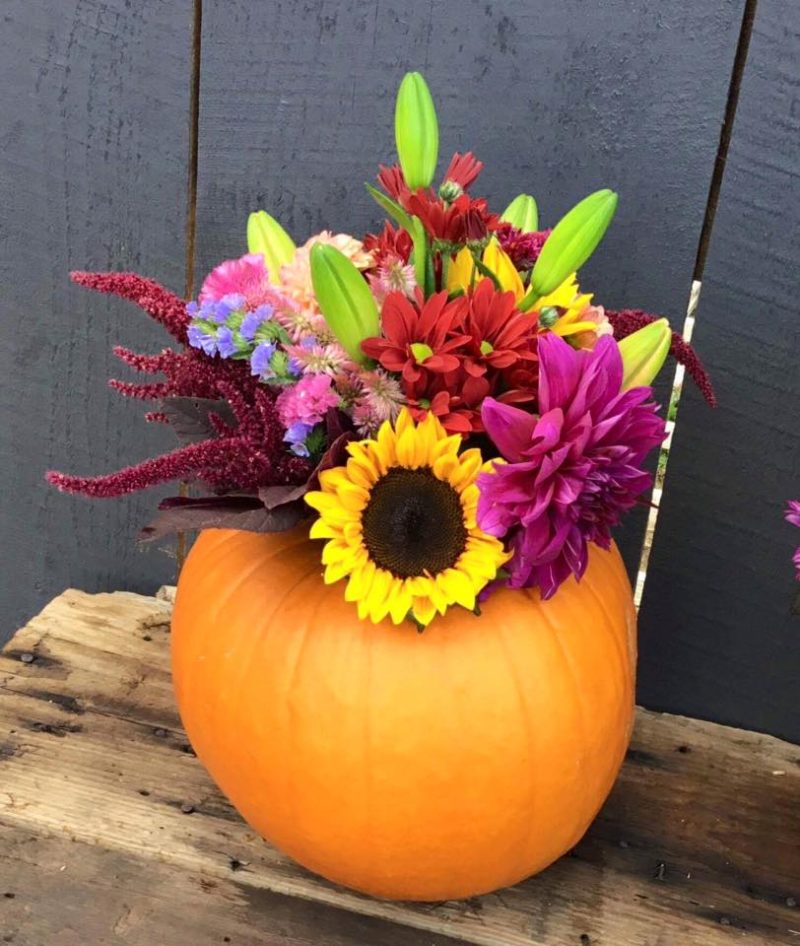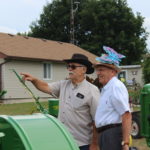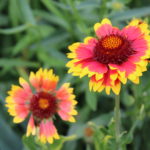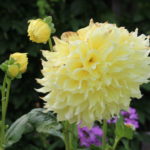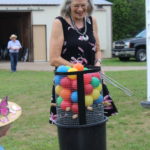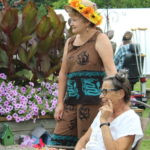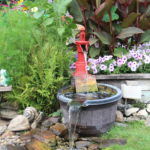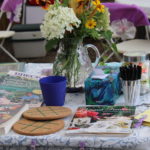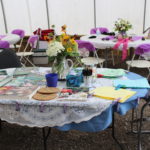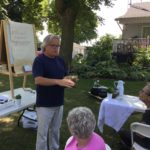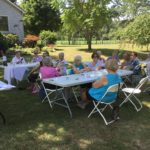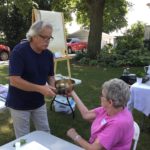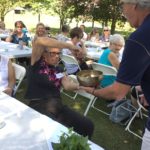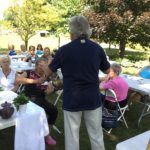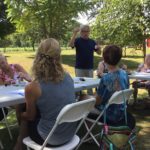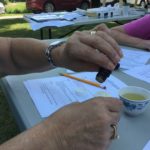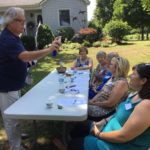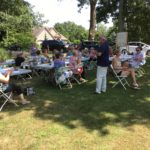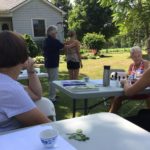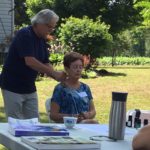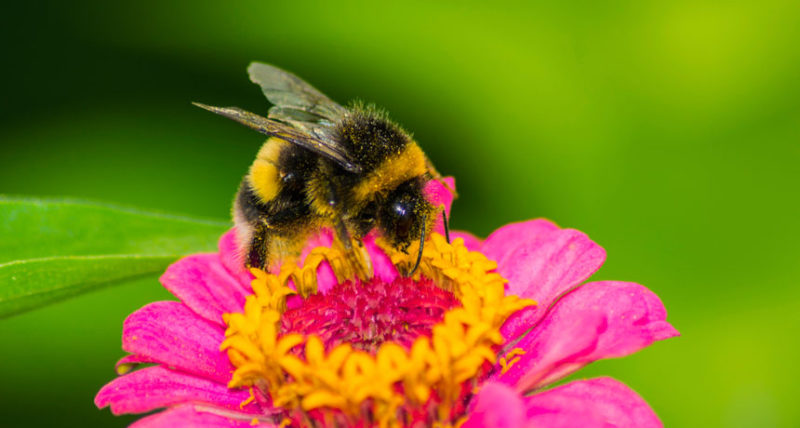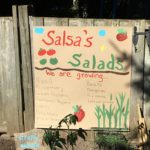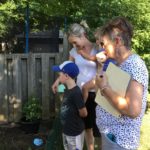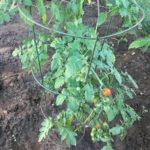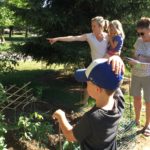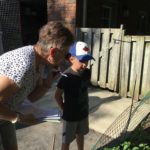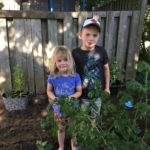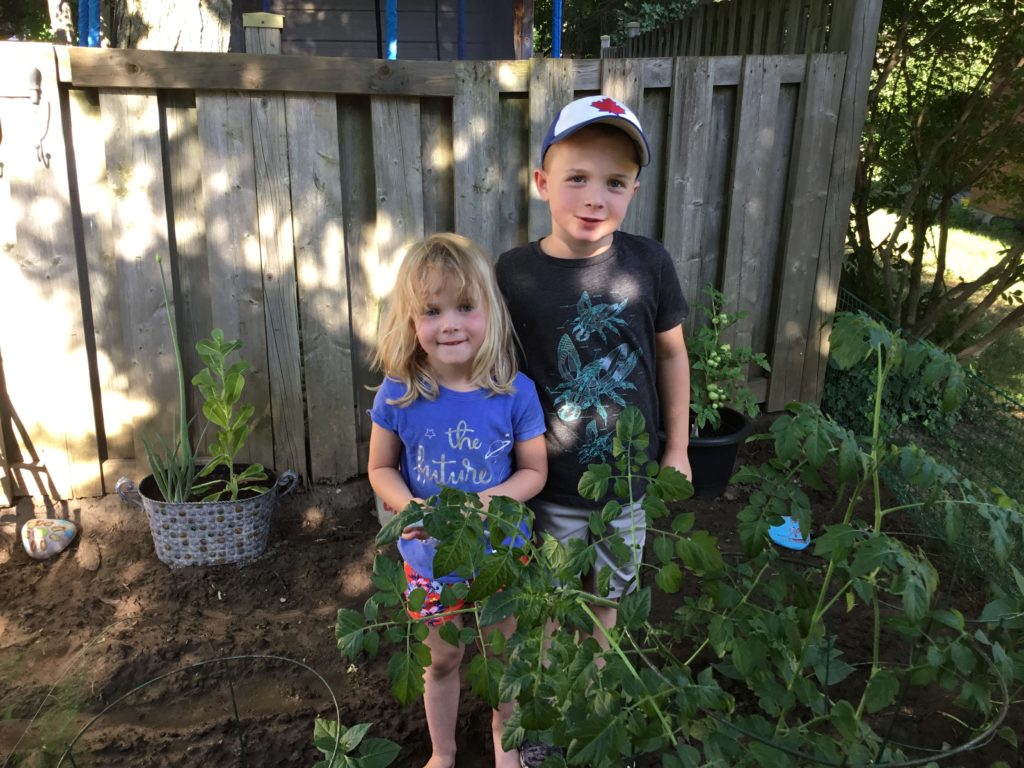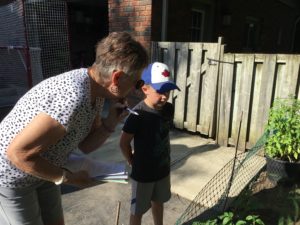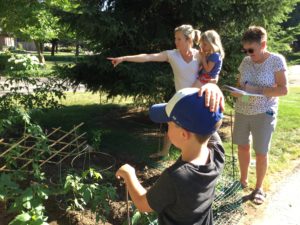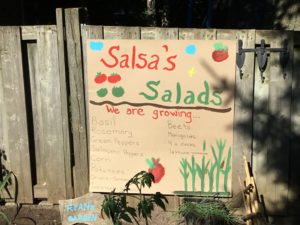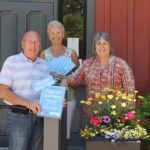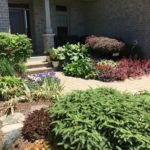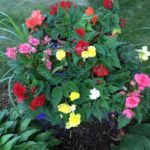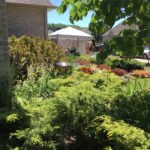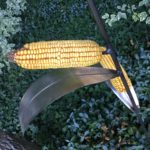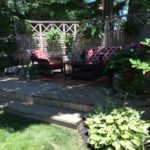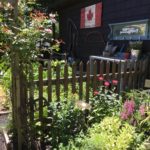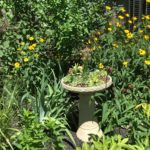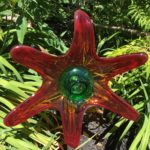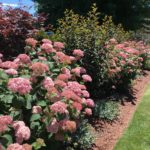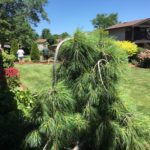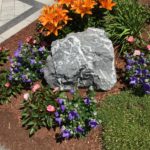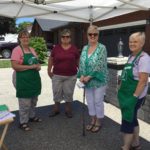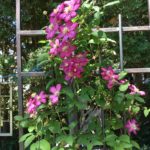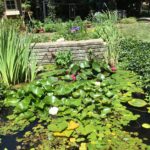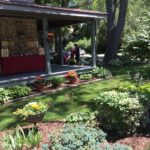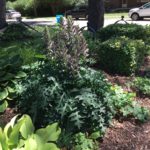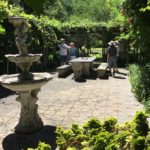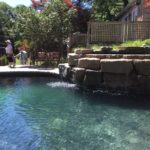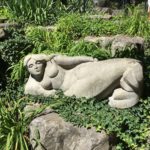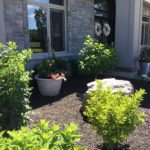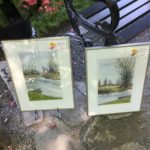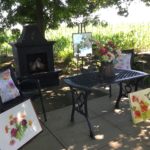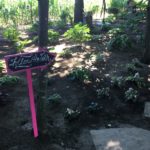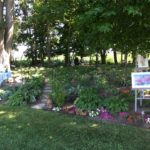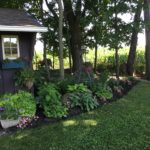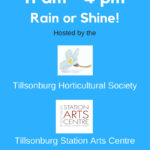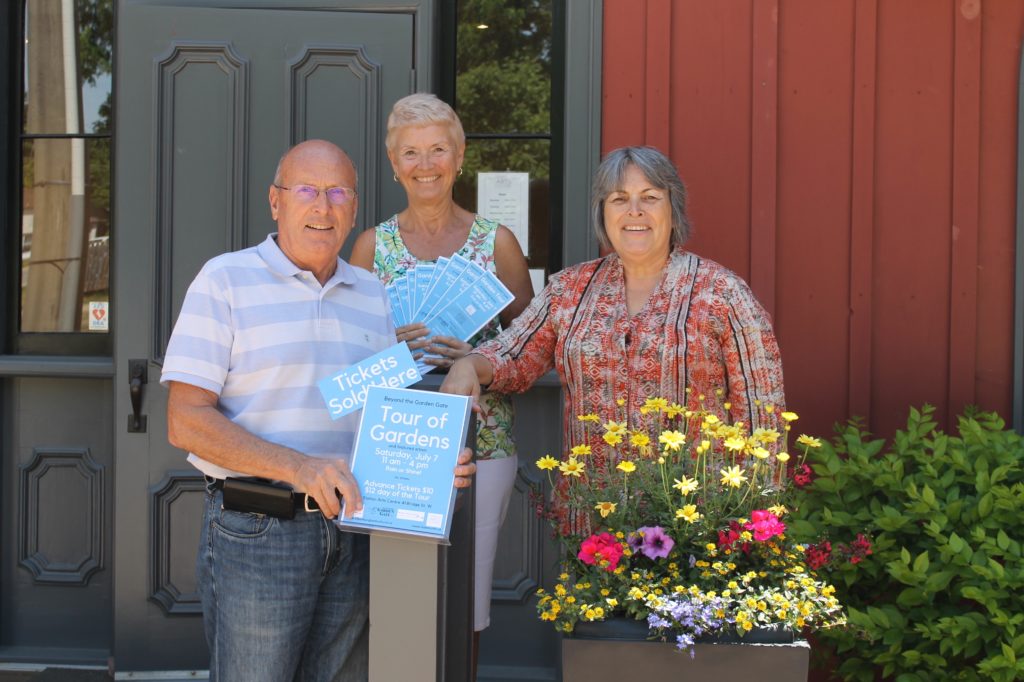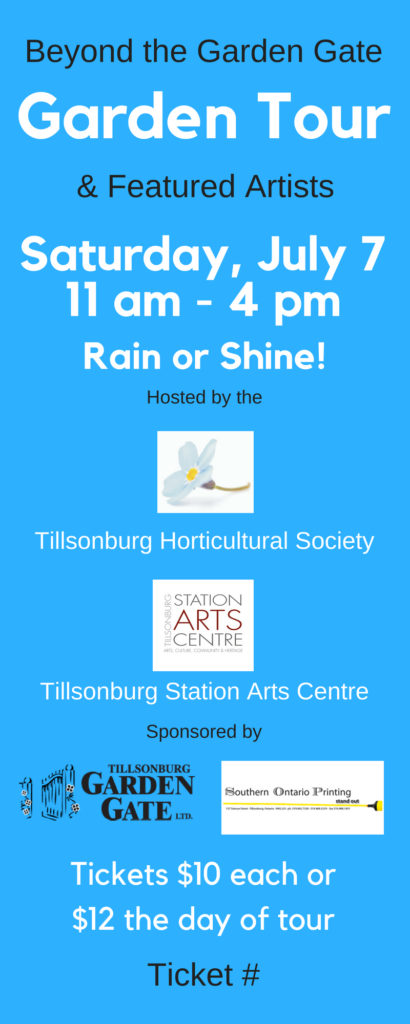It’s Still Just Dirt, The Tillsonburg News – June 2018
by Angela Lassam
June is the start of the Japanese beetle invasion on our gardens. No garden will avoid this destruction. It happens as soon as all the hard work is done to get our gardens doing well.
The Japanese beetle originally was confined to Japan. It was only found there as it was surrounded by water and had natural enemies like the parasitic wasp. The beetles arrived in North America as grubs in the soil on iris roots and were first found in a nursery in New Jersey in 1916. A law was introduced in 1912 for no plants allowed in soil to enter the country but it was not implemented at that time. By 1920 an eradication program was dropped as there were just too many beetles to control. In USA it is a huge problem and it is reported that after spraying they can be shoveled up in bucketfuls.
The beetle is very noticeable approx. ½” in size and quite colorful. It is a mix of copper and metallic blue/green and very rarely only one but several appear together. Their cycle runs over two years. They lay eggs in the soil beginning early June where they turn into tiny white grubs approximately ¼” and stay there eating the roots of grass or other plants growing up to 1”. They go deeper over the winter resurfacing late spring as beetles to start the cycle again. Their adult stage is only 40 days long but during that time they are very prolific and destructive.
There are several ways to reduce the infestation at different times of their life cycle. The grass can be treated with nematodes which will kill the larvae in the soil. An alternative treatment of milky spore can be used. It is a longer term treatment but it is more expensive as larger areas need to be treated.
A homemade solution of 2 tbsp of dish soap and 1 gallon of water will treat 1000 sq. ft. sprayed on obvious affected areas in early morning. It will bring the grubs up and will be natural food for the birds.
As adults they can be handpicked into a bucket of soapy water. There are traps for them available in nurseries. They need to be placed away from any vegetation (edge of property). There is controversy about these as they actually can draw them from the neighborhood.
There are companion plants that deter them especially marigolds and geraniums. Geraniums make them dizzy when near them and they will drop to the soil where they can be easily picked up into a bucket of soapy water.
There are some plants they will not eat in the vegetable patch. Squash, onions, lettuce, parsley, spinach and potatoes are just a few. Some trees are also disliked – Red bud, Dogwood, Red Maple. Shrubs affected could be Rose of Sharon and Burning Bush. They do like most fruit trees, beans and especially Canna lilies.
Good luck with you war on these pests and I hope it helps some of the many gardeners plagued by these “pretty” beetles.
The Horticultural Society has three Summer events planned over the period that there will be no meetings. The first one is the “Beyond the Garden Gate” garden tour taking place on Saturday July 7th, 11am – 4 pm, rain or shine. Tickets are $10 in advance obtainable at Station Arts Centre, Merle Norman or Tillsonburg Garden Gate. Also contact any board member for one or more, $12 on the day at any of the gardens. This event is open to everyone.
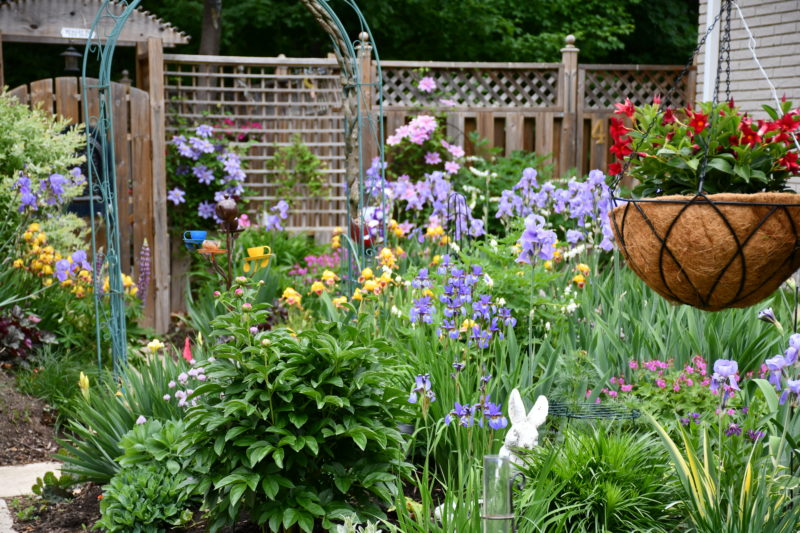
Beyond the Garden Gate Tour in Tillsonburg coming up on July 7.
The tour comprises of six gardens, all easy travelling distance around Tillsonburg with stops at Tillsonburg Garden Gate and Station Arts Centre. Each location will have a local artisan either artistic or musical. Tillsonburg Garden Gate is giving ticket holders a discount on any purchase for the weekend. Station Arts Centre as usual is admission free. Purchase of a ticket gives you a detailed map and description of all that is available on the tour so come out and see what some of our members achieve with their gardens and enjoy a pleasant drive.
The second event is a social Garden Party/Potluck Supper on Thursday, 26th July with an afternoon of games, quizs, contests, antique display and music. This event runs from 4 – 8 pm with potluck supper @ 5:30 pm. Watch Facebook for more details, check in the Tillogram or email host Angela Lassam farmer@kwic.com phone 519 936 8117. All members welcome (with spouse/partner/friend too) just bring a potluck dish to share, come and have some fun.
The third event has been prepared as members have requested a workshop. The workshop is Saturday, August 11th from 1 to 4. Two different creams will be made by each participant. Mitchell Hewson, world renowned Horticultural Therapist will lead the hands-on workshop as well as teach about the healing properties of essential oils. Mitchell was extremely well received by the members when he was the Society’s guest speaker last October. Contact Judi Misener at judimisener@gmail.com. Non members are welcome, open to everyone!
Normal monthly meetings will resume on Tuesday, September 4th @ 7:30 pm in the Senior Centre Auditorium Tillsonburg Community Centre. For more information look on Facebook Tillsonburghorticultural or the website www.tillsonburghorticultural.ca .
